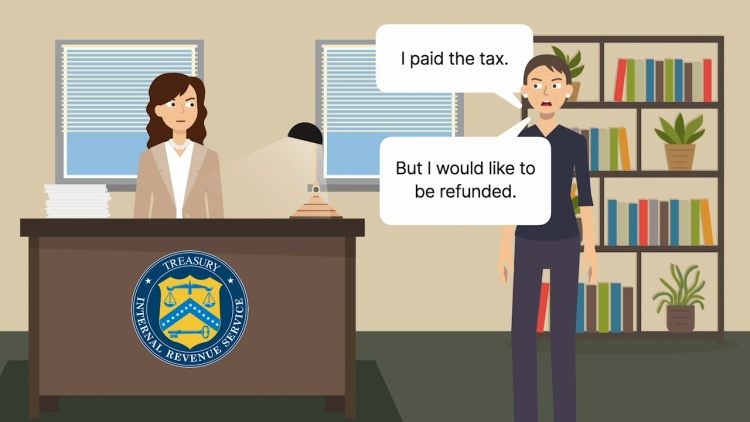Murphy v. Internal Revenue Service
United States Court of Appeals for the District of Columbia Circuit
493 F.3d 170 (2007)

- Written by Sean Carroll, JD
Facts
Marrita Murphy (plaintiff) filed a complaint with the U.S. Department of Labor against her former employer for emotional distress resulting from her former employer’s actions. Murphy argued she also suffered physical manifestations of emotional distress. The Secretary of Labor found in favor of Murphy and remanded the complaint to an administrative law judge (ALJ) for damages. The ALJ awarded Murphy $70,000, consisting of $45,000 for emotional distress and $25,000 for harm to Murphy’s reputation. Murphy paid federal income taxes on the $70,000, but later filed an amended income tax return seeking a refund of those taxes on the ground that the award was compensation for a physical injury and thus not taxable. The Internal Revenue Service denied Murphy’s refund request. Murphy brought suit against the United States (defendant), arguing that the award was not taxable because either it was not included in the definition of gross income, or was included in the exception from gross income for personal-physical-injury damages. Murphy also argued that the tax on her award was an unconstitutional direct tax. The district court ruled in favor of the United States. Murphy appealed.
Rule of Law
Issue
Holding and Reasoning (Ginsburg, C.J.)
What to do next…
Here's why 907,000 law students have relied on our case briefs:
- Written by law professors and practitioners, not other law students. 47,100 briefs, keyed to 996 casebooks. Top-notch customer support.
- The right amount of information, includes the facts, issues, rule of law, holding and reasoning, and any concurrences and dissents.
- Access in your classes, works on your mobile and tablet. Massive library of related video lessons and high quality multiple-choice questions.
- Easy to use, uniform format for every case brief. Written in plain English, not in legalese. Our briefs summarize and simplify; they don’t just repeat the court’s language.





